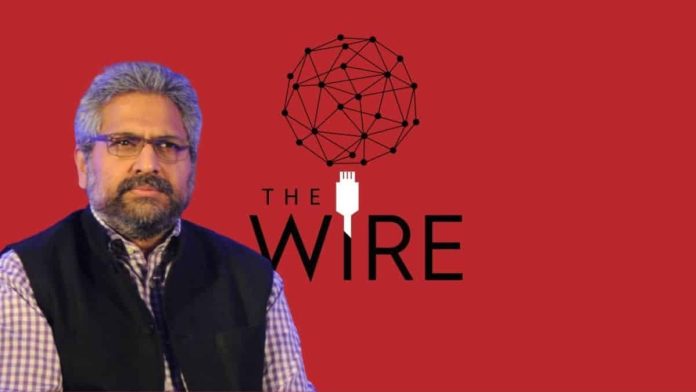– Mohd.Naushad Khan
On May 9, access to The Wire’s website—a major English-language news portal in India—was disrupted nationwide. This move raised concerns about press freedom and government transparency. Users across India reported being unable to access thewire.in, sparking speculation and backlash on social media.
The Wire released an official statement, claiming that Indian internet service providers had blocked the site under a directive from the Ministry of Information and Broadcasting. It condemned the action as “blatant censorship” and a violation of the constitutional guarantee of press freedom.
The publication affirmed its commitment to fair and truthful journalism and announced it would legally challenge the “arbitrary and inexplicable” order. Journalists, civil society groups, and press freedom advocates condemned the action, calling it part of a growing trend of state control over digital media in India.
The incident coincided with The Wire’s tenth anniversary. The publication called on readers and supporters to stand in defence of independent journalism. It framed the blockade as a critical moment for democracy in India.
On the same day, amid rising tensions between India and Pakistan, the Ministry of Defence reissued a media advisory. It prohibited all media channels, digital platforms, and individuals from broadcasting live or real-time coverage of defence operations or the movement of security forces.
The advisory urged all media outlets and social media users to act responsibly. It emphasized strict adherence to existing laws when reporting on defence and security matters.
It clearly stated that no real-time reporting, visuals, or “source-based” information related to defence operations should be shared. “Premature disclosure of sensitive information may assist hostile elements and endanger operational effectiveness and personnel safety,” the advisory said.
Media coverage, it said, must be limited to periodic briefings by a government-designated officer until operations conclude.
The advisory stressed the media’s role in safeguarding national security. It said that, beyond legal compliance, there is a shared moral duty not to compromise ongoing operations or force security.
Previously, the Ministry of Information and Broadcasting had also directed all TV channels to follow Rule 6(1)(p) of the Cable Television Networks (Amendment) Rules, 2021. This rule bars live coverage of anti-terrorist operations, limiting it to periodic briefings by government officials.
The Ministry of Defence added that violating this rule and airing sensitive content will be considered a breach of the Cable TV Rules and will invite legal action.




